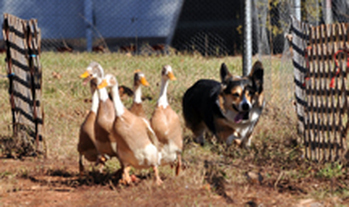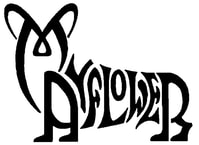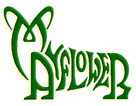History of the Breed

Unlike some dog breeds, the Pembroke Welsh Corgi does not have a traceable breed history. Its origins are obscured by tales and folklore and even contain ties to the wee folk of the British Isles.
According to legend, two children tending their family's cattle on royal lands found a pair of puppies, which they thought were foxes. When they brought the puppies home, they were told the dogs were a gift from the fairies. Welsh legends tell us that the fairies would use the little dogs to pull their carriages or as mounts for them to ride into battle. If you look, you can still see the marks of the fairy saddle on their shoulders (especially pronounced in the sable color). As the little puppies that the children brought home grew, they learned to help their humans watch over their cattle, a task to become a responsibility for their descendants for the centuries to follow.
The more commonly accepted theory traces back to Scandinavian raiders bringing their dogs with them to the British Isles, possibly as far back as the 9th or 10th century. The Swedish Vallhund is seen to bear many similarities to today's Pembroke Welsh Corgi and is presumed to have been bred with native Welsh dogs. Any of the offspring that expressed cattle herding/driving traits were no doubt selectively bred to enhance that skill. It is also thought that the dogs brought over with Flemish weavers, who settled in Pembrokeshire, South Wales in the 12th century, were bred with the local cattle dogs adding the Spitz characteristics that the Pembroke Welsh Corgi expresses today.
The name of the breed is as difficult to nail down as is its origin. One school combines the Welsh word "cor," which means "to watch over or gather" with "gi," a form of the Welsh word for dog. This was certainly a responsibility of these small cattle herders and homestead guardians. Another ascribes the word corgi as the Celtic word for dog and that the Norman invaders thereafter referred to any local dog as a "cur" or mongrel. Finally, legend pops up again with the interpretation that the word "cor" means "dwarf." Combine that with the Welsh form for dog "gi" and you have "dog of the dwarfs or "dwarf dog." For many years Corgis (both breeds) were referred to as either "Ci-llathed" meaning "yard long dog" (we're talking a Welsh yard here) or as "Ci Sawdlo" due to its nature of nipping at cattle's heels.
Related Website: Pembroke Welsh Corgi Club of America
According to legend, two children tending their family's cattle on royal lands found a pair of puppies, which they thought were foxes. When they brought the puppies home, they were told the dogs were a gift from the fairies. Welsh legends tell us that the fairies would use the little dogs to pull their carriages or as mounts for them to ride into battle. If you look, you can still see the marks of the fairy saddle on their shoulders (especially pronounced in the sable color). As the little puppies that the children brought home grew, they learned to help their humans watch over their cattle, a task to become a responsibility for their descendants for the centuries to follow.
The more commonly accepted theory traces back to Scandinavian raiders bringing their dogs with them to the British Isles, possibly as far back as the 9th or 10th century. The Swedish Vallhund is seen to bear many similarities to today's Pembroke Welsh Corgi and is presumed to have been bred with native Welsh dogs. Any of the offspring that expressed cattle herding/driving traits were no doubt selectively bred to enhance that skill. It is also thought that the dogs brought over with Flemish weavers, who settled in Pembrokeshire, South Wales in the 12th century, were bred with the local cattle dogs adding the Spitz characteristics that the Pembroke Welsh Corgi expresses today.
The name of the breed is as difficult to nail down as is its origin. One school combines the Welsh word "cor," which means "to watch over or gather" with "gi," a form of the Welsh word for dog. This was certainly a responsibility of these small cattle herders and homestead guardians. Another ascribes the word corgi as the Celtic word for dog and that the Norman invaders thereafter referred to any local dog as a "cur" or mongrel. Finally, legend pops up again with the interpretation that the word "cor" means "dwarf." Combine that with the Welsh form for dog "gi" and you have "dog of the dwarfs or "dwarf dog." For many years Corgis (both breeds) were referred to as either "Ci-llathed" meaning "yard long dog" (we're talking a Welsh yard here) or as "Ci Sawdlo" due to its nature of nipping at cattle's heels.
Related Website: Pembroke Welsh Corgi Club of America
|
© 2021 Mayflower Pembroke Welsh Corgi Club, Inc.
All rights reserved. |




